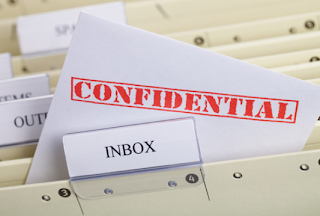This article provides some good advice on how you can prevent identify fraud. Identity theft and fraud are among the fastest growing crimes in Canada and by paying attention to these few tips you can reduce the risk of it happening to you.
I you suspect an identity theft crime you should contact your local Police authority.
We can help with many types of fraud and security investigations. Call us to discuss your situation.
source: The Huffington Post Canada, Jeffrey Schwartz, Consolidated Credit Counseling Services of Canada
"Every year thousands of Canadians fall victim to identity theft and fraud. By using your name, date of birth, credit card, Social Insurance Number and other personal information, savvy criminals can open credit card and bank accounts, redirect mail, establish cell phone services, rent vehicles, and even secure employment.
Last year alone, more than 36,000 Canadians were victims of identity theft and fraud, resulting in the loss of more than 78-million dollars, according to the Canadian Anti-Fraud Centre. In fact, fraud and ID theft are among the fastest growing crimes in Canada and the financial impact on individuals, families and businesses can be devastating.
1.Erase all personal information before disposing or selling electronic equipment. This includes computers, cell phones, CDs, DVDs, diskettes and memory sticks.
2.Shred or destroy pre-approved credit card applications, credit card receipts, bills and related information when you no longer need them.
3.Never send confidential personal or financial information by email.
4.Ask yourself if you really need all the personal identity documents you keep in your wallet or purse. Remove those you don't need and keep them in a secure place instead.
5.Periodically check your credit reports, bank and credit card statements and report any irregularities to your financial institutions and the credit bureaus.
6.During debit or credit transactions, swipe the card yourself rather than allowing the cashier to do it for you.
7.Memorize all the personal identification numbers for your payment cards. Never write them on the cards.
8.Never use a public access computer or wireless network when banking or shopping online.
9.Avoid mail or telephone solicitations disguised as promotions or surveys offering instant prizes or awards. These scams are designed for the purpose of obtaining your personal details including credit card numbers.
10.Don't reply to spam emails, even to unsubscribe, and do not click on any links listed in a spam email. Many of these are phishing scams designed to access the personal information stored on your computer.
read the full article..

No comments:
Post a Comment